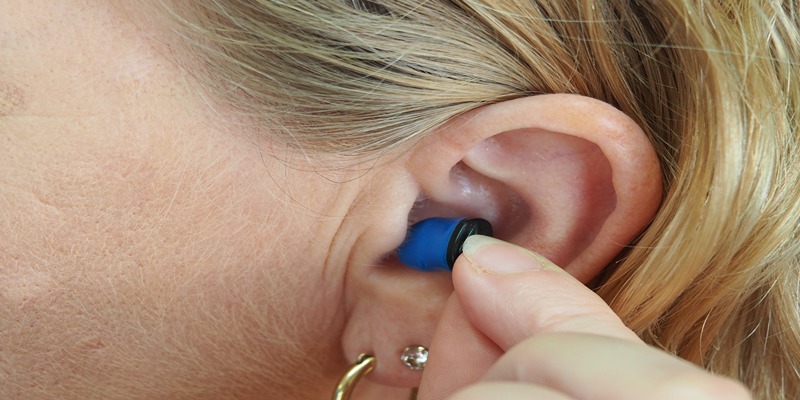Imagine oneself engaging in their daily routine when an unforeseen event occurs. The intensity of sounds progressively diminishes and eventually ceases. Similar to many others annually, you have experienced sudden hearing loss. The upward trajectory of this tendency is evident, with individuals of all age groups susceptible to its impact.
The sudden onset of deafness encompasses more than a mere impairment in auditory perception. This experience has the potential to significantly alter one's life and evoke a sense of unease. Engaging in routine tasks becomes challenging, while basic enjoyments such as music appreciation or social interactions may become unattainable. However, there is a glimmer of optimism since the possibility exists for future improvements. This article offers readers the essential resources to regain control over their lives by guiding them through the process of obtaining an accurate diagnosis and implementing effective strategies for managing their circumstances.

Hearing Loss Action: The Immediate Steps You Must Consider
In the event of an abrupt onset of hearing loss, promptly seeking medical assistance is of paramount importance for one's well-being. In contrast with gradual auditory dysfunction related to ageing, an acute hearing impairment must be treated promptly. The consequence is that they can suffer irreversible ear deafness if they fail to seek urgent medical attention immediately.
Your recovery process requires the intervention of an audiologist, who is a trained medical practitioner dealing with hearing loss. They have got expert equipment that help in their tests hence, they give you whole findings about the main causes you suffer the deafness.
However, there are occasions when one must undergo a wait period prior to visiting a doctor. What options would one consider if one was made to experience this waiting period? Although there are strategies like limiting noise exposures and ensuring dry ears that can offer temporary relieve, they should never replace visiting doctors.
Consult a Specialist: Beyond General Practitioners
An otolaryngologist, also known as an ear, nose, and throat specialist, is capable of providing more specialized treatment compared to a family practitioner. These doctors often possess a significant amount of specialized knowledge in managing conditions such as sudden hearing loss and may provide guidance on surgical or pharmacological interventions that might potentially expedite the process of recuperation.
The Importance of Speedy Medical Intervention
When dealing with unforeseen hearing loss, the element of time becomes crucial. Timely medical intervention significantly enhances the likelihood of auditory restoration subsequent to the occurrence of hearing impairment. Seeking therapy at an earlier stage presents individuals with a wider range of options and enhances their likelihood of averting permanent auditory impairment. Delaying the process of attaining wellness might perhaps result in a reduced range of options and a diminished likelihood of achieving a full recuperation.
Hearing Loss Diagnosis: The Gateway to Treatment
The next critical step is to get a thorough diagnosis once you've acted quickly and spoken with the right professionals. In order to determine the cause and severity of your hearing loss, you will likely need to undergo a battery of tests. Having an idea of the nature of the problem might assist guide therapy decisions.
In most cases, a thorough medical history interview will precede a battery of diagnostic testing. Pure-tone tests, which measure the softest sounds a person is capable of hearing, and speech tests, which measure the listener's capacity to understand spoken words at different levels, are two examples.
Audiometric Tests: Their Indispensable Nature
Hearing loss might be difficult to diagnose without an audiometric evaluation. The middle ear may be evaluated using tympanometry, while the inner ear's functionality can be evaluated with an otoacoustic emission test. By completing these audiometric tests, your doctor will have more information to create a personalized treatment strategy.
Imaging Tests: Unveiling The Unknown
Your audiologist or otolaryngologist may suggest further imaging with an MRI or CT scan if they suspect a problem with your ears or throat. When your doctor feels that your hearing loss is related to anything more serious, such a tumor or a severe ear infection, these tests take on added importance. Imaging examinations may provide details about your hearing health that conventional audiometric exams might overlook.

Hearing Loss Coping: Strategies to Reclaim Your Life
Long-term coping strategies are used subsequent to the receipt of a diagnosis and emergency medical intervention. This conflict extends beyond the physical realm of the battlefield and has a psychological dimension as well. Individuals experiencing challenging circumstances might navigate through these difficulties by seeking support from their familial network, close acquaintances, and local community establishments. Obtaining emotional nourishment may be achieved by the act of discussing personal experiences, articulating individual challenges, and listening to the adaptive mechanisms used by others.
Furthermore, the progress in technology has yielded practical solutions to everyday challenges. Although hearing aids may not provide a complete remedy for hearing loss, they can significantly enhance an individual's capacity to interact with their surrounding environment. Cochlear implants, which use electrical stimulation of the auditory nerve, may provide a viable option for cases characterized by greater severity.
Emotional Intelligence: Navigate Through Emotional Turmoil
The extent to which an individual adapts to life with hearing loss is heavily contingent upon their level of mental resilience. One's overall well-being and contentment may be significantly enhanced by the cultivation of resilience, maintenance of a positive mindset, and proactive pursuit of assistance. Possessing a heightened degree of emotional intelligence facilitates improved self-management and enhanced interpersonal connections with those in one's social sphere.
The Tech-Savvy Route: When Gadgets Become Your Ears
When addressing the issue of hearing impairment, technology may function as a significant equalizer. The use of assistive technologies, such as hearing aids and cochlear implants, has significantly augmented individuals' ability to engage in communication and participate in various activities. In order to choose the most suitable medical equipment for an individual, it is important to engage in a discussion with a healthcare professional.
Conclusion
The experience of sudden hearing loss encompasses a broader scope of impact beyond the auditory system. Merely addressing the symptoms in isolation is insufficient; a more holistic approach is required. In addition to using technological advancements and medical interventions, our organization also offers comprehensive psychological and emotional support. One may depend on the assistance provided by their loved ones and the others in their immediate social circle. Contemporary technology has the potential to significantly enhance auditory capabilities. Implementing proactive measures not only facilitates the adaptation to hearing impairment but also enhances overall well-being and fosters more gratifying interpersonal connections.




